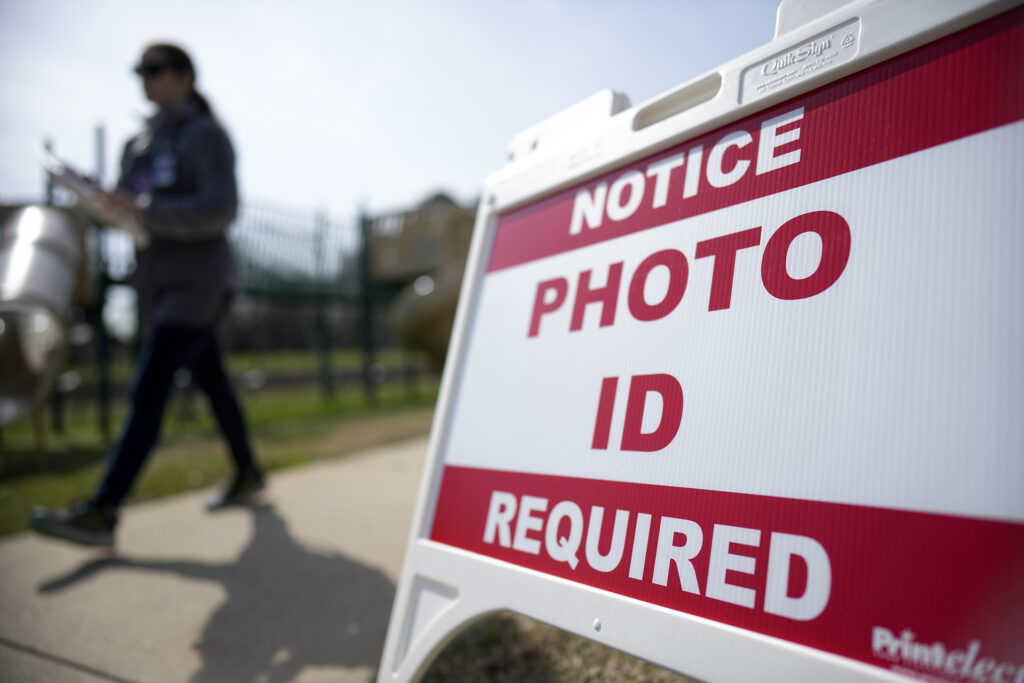UNC Students Can’t Use Digital IDs in 2024 Election

University of North Carolina (UNC) Chapel Hill students and employees will not be able to use their digital IDs to vote this November following a decision Friday from the North Carolina Court of Appeals.
This evening, a state appeals court paused a decision from a Wake County judge greenlighting the use of these mobile IDs for voting while the appeals process is ongoing in this case.
On Aug. 20, the North Carolina State Board of Election voted to reverse previous guidance that only allowed physical, plastic photo ID cards to be used for voting.
Then, the Republican National Committee and the North Carolina Republican Party filed a lawsuit against the State Election Board for that decision. This latest action by the state Court of Appeals is a victory for the Republican plaintiffs.
While the standard ID card that the university gives to students is digital, the school announced last week that it would provide physical, plastic ID cards for free in the midst of the lawsuit.
Despite that, this still would force UNC students who were planning on using their digital ID to vote to jump through additional hoops in order to cast their ballots.
Learn more about the case here.
Original post, Sept. 19
A North Carolina judge denied a request from the Republican National Committee (RNC) and North Carolina Republican Party to prohibit University of North Carolina-Chapel Hill students and employees from using a digital form of in-person voter identification.
The ruling comes after the RNC and state GOP filed a lawsuit last week challenging the North Carolina State Board of Elections’ (NCSBE) approval of the UNC-Chapel Hill mobile One Card for the November 2024 general election. The board approved the mobile ID on a 3-2 party line vote, with Republican members in the minority.
This was the seventh lawsuit filed by the RNC in North Carolina so far this cycle. Sign up for our free newsletters so you never miss a new lawsuit or court decision that could impact who takes the White House this fall.
With today’s decision, UNC-Chapel Hill students and employees will be able to utilize the mobile One Card on Election Day, Nov. 5, as well as throughout the state’s early voting period, which begins on Oct. 17 and runs through Nov. 2.
At a hearing this afternoon, a Wake Superior Court judge heard arguments concerning the Republicans’ motion for a temporary restraining order and subsequently ruled from the bench to reject the request.
Last year, a contested North Carolina law went into effect that imposes strict photo identification requirements on voters. Under the photo ID law — which is the subject of an ongoing federal court challenge — certain student IDs pre-approved by the NCSBE are among the state’s acceptable forms of voter identification.
But the Republican suit argues that state law and previous NCSBE guidance preclude voters from using an electronically-stored image of a photo ID on a mobile device when casting a ballot at the polls. According to the RNC and state Republican Party, approved forms of identification must be a “physical, tangible item that can be held in a person’s hands and inspected.”
However, the state board of elections — a named defendant in the case — said the mobile One Card complies with state law, adding that Republicans’ “tangibility requirement is entirely of their own invention.”
In response to the legal action, UNC students successfully petitioned university administrators to print physical One Cards at no cost for students, faculty and staff to use as voter IDs. Affirmative Action Coalition — a UNC student organization — also intervened in the lawsuit to defend the mobile One Card and underscore that these IDs are “the most accessible form of voter ID that UNC students have.”
Meanwhile, the GOP expressed several concerns about purported problems that could arise from the use of electronic IDs. Such speculative issues included the possibility that election officials might have trouble viewing digital IDs on a screen and that electronically-stored IDs could be altered or difficult to authenticate, thus increasing the potential for “fraud” and noncitizen voting.
“Defendants’ unilateral expansion of photo identification before registering and accepting voters at in-person poll sites in contravention of the law could allow hundreds or thousands of ineligible voters to vote in the upcoming November 5, 2024, election and beyond,” the Republicans’ Sept. 12 complaint reads.
The Democratic National Committee, which sought involvement in the case, called the lawsuit an “eleventh-hour bid to confuse and potentially disenfranchise up to 40,000 individuals who attend or work at North Carolina’s flagship state university.”
The RNC has not yet indicated whether it plans to appeal today’s ruling.